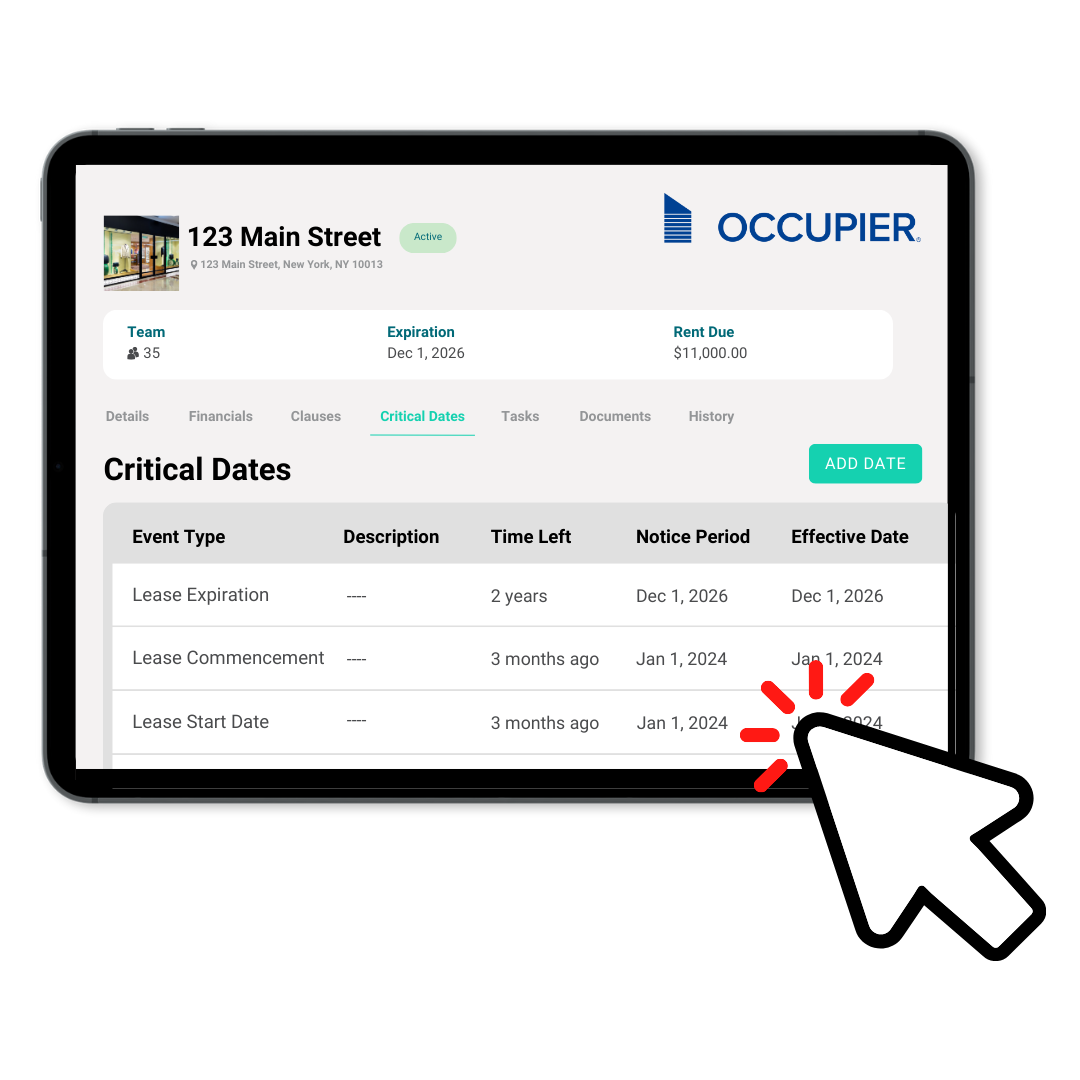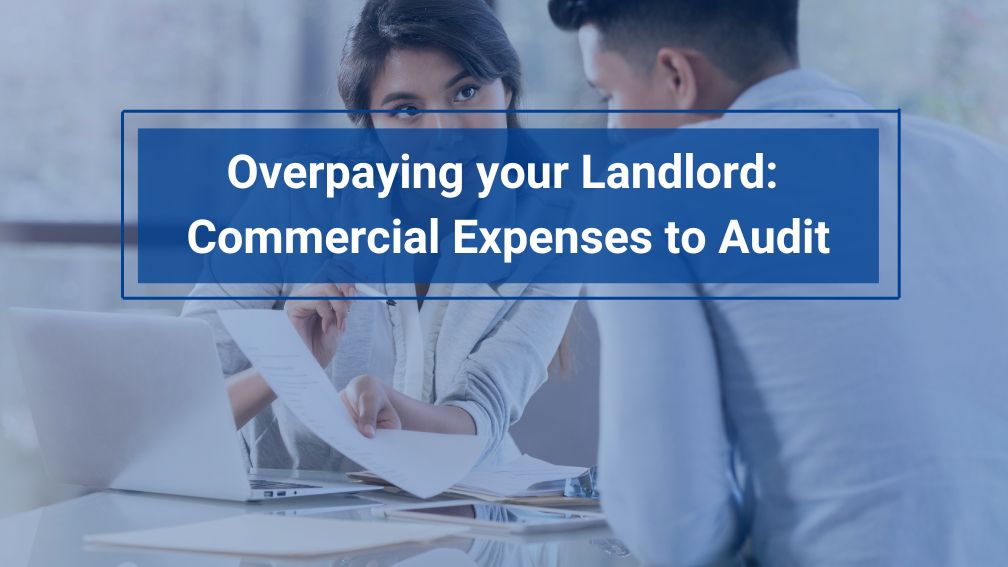Overpaying your Landlord: Commercial Expenses to Audit
Last Updated on July 12, 2024 by Morgan Beard
Overpaying your landlord can have a significant impact on your bottom line and profitability. Regularly auditing your rent expenses can help you ensure you’re not overpaying, identify discrepancies in billing, and potentially negotiate for more favorable lease terms.
Let’s explore the signs that you might be overpaying your lease expenses!
Signs You Might Be Overpaying
- Sudden Increase in Rent: If you notice a substantial and unexpected increase in your monthly rent, it’s essential to investigate further. While rental increases are common, an excessively high increase could indicate an error or potential overcharge.
- Higher Costs Than Comparable Properties: Conduct market research to understand the typical rental costs for similar commercial properties in your area. If your rent is significantly higher than the market average, it’s worth examining the reason behind the disparity.
- Inadequate Documentation: If your landlord fails to provide detailed billing statements or invoices, it becomes challenging to verify the accuracy of your rent charges. Lack of transparency can lead to overpayments or incorrect calculations.
- Unexplained Fees and Charges: Keep an eye out for any additional fees or charges that are not clearly outlined in your lease agreement. Landlords sometimes add hidden charges, such as administration or maintenance fees, without proper justification.
5 Common Causes of Rent Overpayments
1. Calculation Errors
Mistakes happen, and landlords or property management companies may inadvertently miscalculate monthly rent charges. Carefully review your lease agreement and ensure that the rent calculation aligns with the terms outlined.
2. Inaccurate Square Footage
The size of your rented space directly impacts your rent. If the square footage of your leased area is incorrectly recorded, you could be paying more than necessary. It’s crucial to verify the accuracy of the measurements used to calculate your rent.
3. Unaccounted Concessions or Discounts
Concessions and discounts, such as rent abatements or tenant improvement allowances, should be clearly outlined in your lease agreement. Ensure that these concessions are appropriately applied and accounted for in your monthly rent invoices.
4. Common Area Maintenance (CAM) Charges
Commercial leases often include CAM charges to cover shared maintenance expenses for common areas within a property. These charges should be accurately calculated and allocated based on your leased area’s proportionate share. Verify that the CAM charges are reasonable and aligned with your lease agreement.
5. Tax Assessment Errors
Property taxes can be a significant expense for commercial tenants. However, errors in tax assessments can result in inflated tax payments, leading to overpayment. Review your property tax assessments and compare them to local tax rates to ensure accuracy.
How to Effectively Audit Your Rent Expenses Monthly
Regularly auditing your rent expenses is crucial to maintain control over your costs and avoid overpaying your landlord. Here are some steps to help you conduct a thorough audit:
- Review Lease Agreements: Familiarize yourself with the terms and conditions of your lease agreements. Pay special attention to rental calculations, additional charges, and any concessions or discounts.
- Organize Documentation: Maintain a comprehensive record of all rent-related documents, including lease agreements, invoices, receipts, and correspondence with your landlord. Organize these documents systematically for ease of reference during the audit process.
- Verify Rent Calculation: Double-check the accuracy of your rent calculation based on the terms specified in your lease agreement. Ensure that any changes in rent, such as annual increases, are correctly applied.
- Compare Market Rates: Research market rates for similar commercial properties in your area. Compare your rental costs with these rates to determine if you’re paying a fair price.
- Examine Additional Charges: Scrutinize any additional fees or charges included in your rent invoices. Ensure that these charges are legitimate, justified, and align with the terms of your lease agreement.
- Assess CAM Charges: Review the CAM charges levied by your landlord for maintenance and shared expenses. Confirm that these charges are calculated accurately and allocated fairly based on your leased area.
- Validate Tax Assessments: Verify the accuracy of property tax assessments by comparing them with local tax rates and regulations. Contact tax authorities if you suspect any errors or discrepancies.
- Seek Professional Assistance: Consider engaging a certified public accountant (CPA) or a real estate advisor with expertise in lease management and accounting to assist you with the audit process. Their knowledge and experience can help uncover potential overpayments and negotiate more favorable terms.
By consistently auditing your rent expenses, you can identify discrepancies, rectify errors, and ensure that you’re not overpaying your landlord. Implementing a structured and collaborative approach to lease management and accounting can further streamline the audit process and provide ongoing visibility into your rental costs.
Proactive management of your lease agreements and expenses is key to maximizing cost savings and maintaining a healthy financial position. Regular rent audits can contribute significantly to your organization’s bottom line and long-term success.

Product Tour
Take a self-guided tour and see how the fastest-growing commercial tenants leverage Occupier for lease management & lease accounting.
